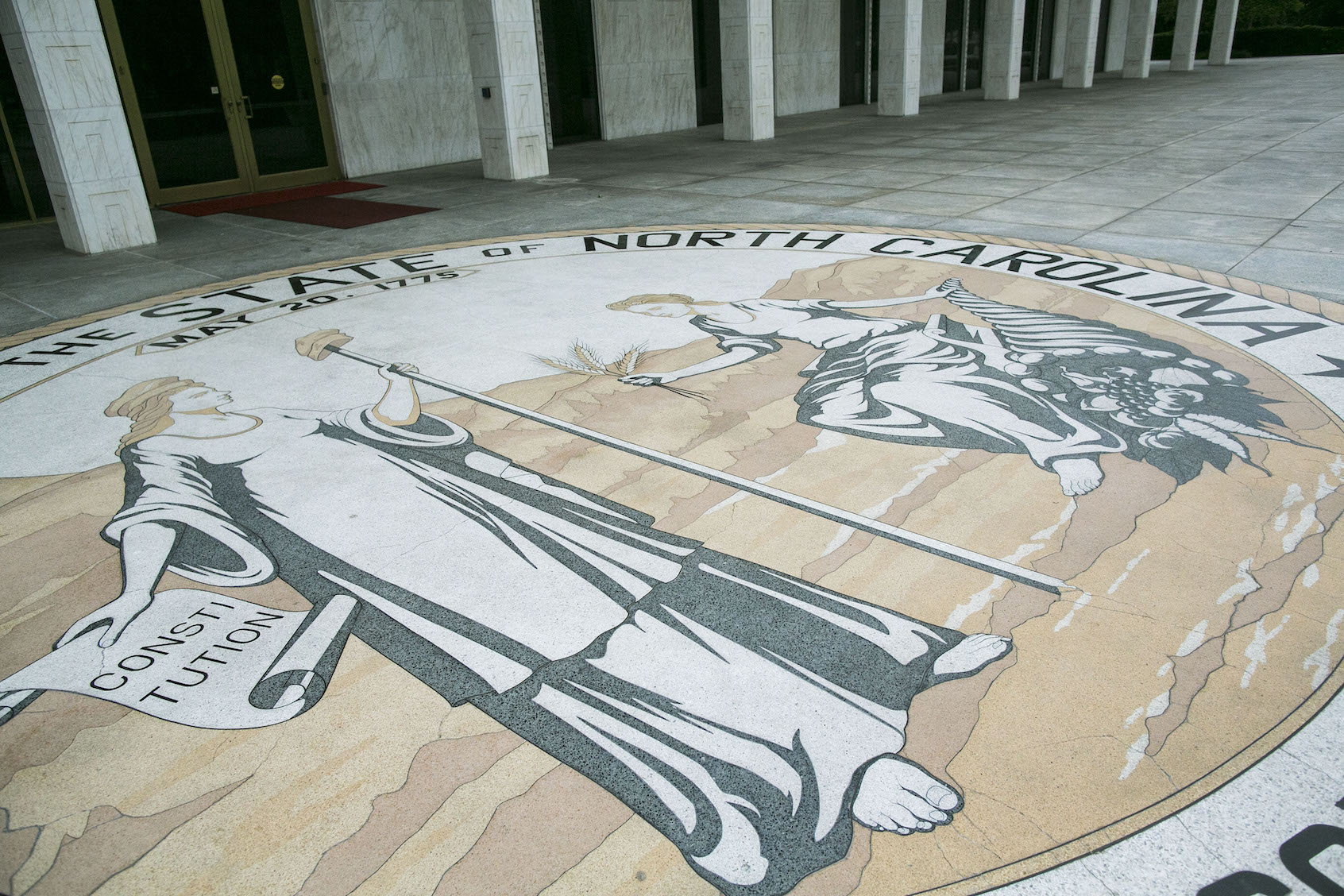World
North Carolina Chief Justice Paul Newby Reshapes State Judiciary

In early 2023, Paul Newby, the Republican chief justice of the North Carolina Supreme Court, wielded significant influence in a crucial decision that could reshape the state’s political landscape. Following a shift in court composition, with two newly elected Republican justices, Newby led the court to rehear a 2022 decision that had outlawed partisan gerrymandering in North Carolina. This move permitted the GOP-controlled legislature to redraw electoral maps that previously favored Democrats ahead of the pivotal 2024 election.
This remarkable turn of events began with a 2022 ruling by a Democrat-majority court, which deemed partisan gerrymandering unconstitutional and mandated independent experts to create fair electoral maps. However, Newby, who had previously voiced strong dissent against the ruling, capitalized on the new Republican majority. In January 2023, GOP lawmakers quickly filed a petition to rehear the case, a rare legal maneuver that had been granted only twice since 1993.
The lawyers from the Southern Coalition for Social Justice, who had successfully argued against gerrymandering, expressed disbelief at the court’s decision to reconsider so soon. Jeff Loperfido, chief counsel for voting rights at the organization, remarked, “We were like, they can’t possibly do this.” Despite the skepticism, Newby and the conservative majority moved forward without the traditional in-person debate among justices, opting instead for a swift email vote.
The court’s conservative justices approved the order in less than an hour, allowing Newby to author a decision that legalized partisan gerrymandering. The ruling enabled the legislature to discard electoral maps that had produced a balanced congressional delegation in 2022, ultimately facilitating a shift to a congressional delegation of ten Republicans and four Democrats in 2024.
Newby’s Political Influence and Judicial Transformation
Since his election to the Supreme Court in 2004, Newby has transformed the court from a traditionally collegial body into a highly partisan entity. Critics argue that he has eroded the independence of the judiciary by pushing for partisan judicial elections and diminishing public financing, making campaigns increasingly reliant on dark money contributions. This shift has resulted in a polarized court dominated by hard-right conservatives.
Newby has also utilized his executive authority to reshape the court system according to his political beliefs. Under his leadership, several liberal and LGBTQ+ employees were replaced with more conservative appointees. His actions have often sparked accusations of politicizing the judiciary, with former justices and legal experts suggesting that Newby operates more like a political operative than an impartial jurist.
Former chief justice Bob Orr commented on Newby’s unprecedented influence, stating, “Without question, Chief Justice Newby has emerged… as one of the most influential judicial officials in modern North Carolina history.” The consequences, according to Orr, have been a judiciary that largely endorses the conservative legislative agenda.
Despite numerous requests for interviews, Newby has largely refrained from commenting publicly on his actions, and many of his critics have expressed concern about potential retaliation for speaking out.
The Broader Implications of Newby’s Leadership
The changes implemented under Newby’s leadership have not only affected North Carolina but also set a precedent for conservative judicial strategies nationwide. Douglas Keith, deputy director at the Brennan Center for Justice, described North Carolina as “the epicenter of the multifront effort to shape state supreme courts by conservatives.”
The implications extend beyond gerrymandering; the Newby-led court reinstated a law requiring voters to present photo identification, further tightening voting regulations in a state that has witnessed significant electoral changes.
As the 2024 elections approach, Newby’s decisions will likely continue to influence the political landscape of North Carolina. His tenure has highlighted the intersection of law and politics, raising concerns about the integrity and impartiality of the judiciary in a state where partisan differences are sharply defined.
In a broader context, the evolution of judicial elections and the increasing reliance on money in campaigns have prompted discussions about the future of fair representation in the courts. The situation in North Carolina serves as a cautionary tale about the potential consequences of intertwining judicial authority with political ambitions.
-

 Science2 weeks ago
Science2 weeks agoIROS 2025 to Showcase Cutting-Edge Robotics Innovations in China
-

 Politics2 weeks ago
Politics2 weeks agoJudge Considers Dismissal of Chelsea Housing Case Citing AI Flaws
-

 World2 weeks ago
World2 weeks agoBravo Company Veterans Honored with Bronze Medals After 56 Years
-

 Health2 weeks ago
Health2 weeks agoStartup Liberate Bio Secures $31 Million for Next-Gen Therapies
-

 Lifestyle2 weeks ago
Lifestyle2 weeks agoStone Island’s Logo Worn by Extremists Sparks Brand Dilemma
-

 Top Stories2 weeks ago
Top Stories2 weeks agoIndonesia Suspends 27,000 Bank Accounts in Online Gambling Crackdown
-

 Health2 weeks ago
Health2 weeks agoTop Hyaluronic Acid Serums for Radiant Skin in 2025
-

 World2 weeks ago
World2 weeks agoHoneywell Predicts Record Demand for Business Jets Over Next Decade
-

 Sports2 weeks ago
Sports2 weeks agoMel Kiper Jr. Reveals Top 25 Prospects for 2026 NFL Draft
-

 Sports2 weeks ago
Sports2 weeks agoYamamoto’s Mastery Leads Dodgers to 5-1 Victory in NLCS Game 2
-

 Lifestyle2 weeks ago
Lifestyle2 weeks agoMary Morgan Jackson Crowned Little Miss National Peanut Festival 2025
-

 Science2 weeks ago
Science2 weeks agoArizona State University Transforms Programming Education Approach








